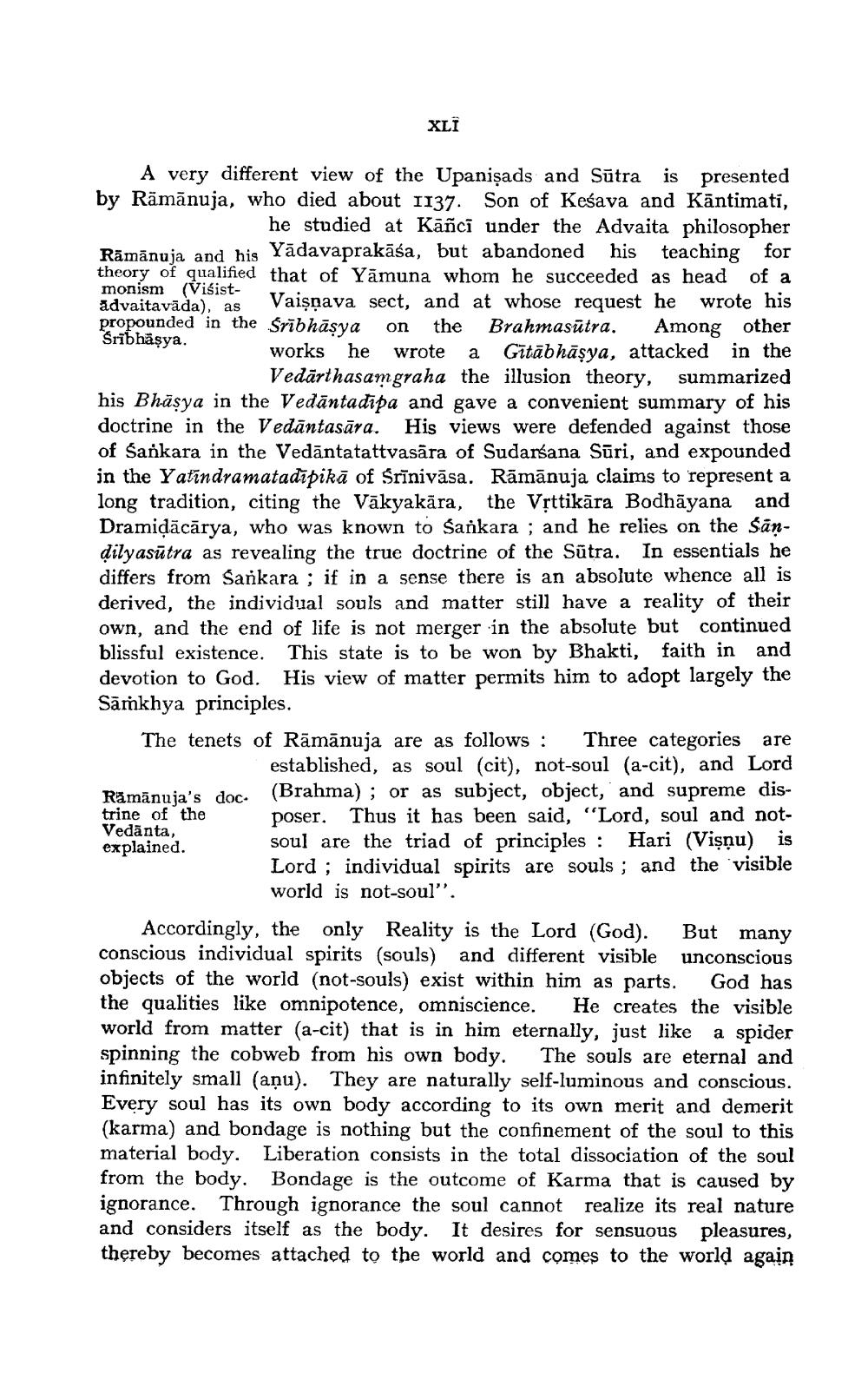________________
XLI
A very different view of the Upanisads and Sūtra is presented by Rāmānuja, who died about 1137. Son of Kesava and Kantimati, he studied at Kañci under the Advaita philosopher Rāmānuja and his Yadavaprakāśa, but abandoned his teaching for
Sribhāṣya.
theory of qualified that of Yamuna whom he succeeded as head of a monism (Viśistadvaitavada), as Vaisnava sect, and at whose request he wrote his propounded in the Sribhāṣya on the Brahmasutra. Among other works he wrote a Gitabhāṣya, attacked in the Vedarthasamgraha the illusion theory, summarized his Bhāṣya in the Vedantadipa and gave a convenient summary of his doctrine in the Vedantasära. His views were defended against those of Sankara in the Vedantatattvasara of Sudarśana Sūri, and expounded in the Yatindramatadipikā of Srinivāsa. Rāmānuja claims to represent a long tradition, citing the Vakyakāra, the Vṛttikāra Bodhāyana and Dramiḍācārya, who was known to Sankara; and he relies on the Sandilyasutra as revealing the true doctrine of the Sutra. In essentials he differs from Sankara; if in a sense there is an absolute whence all is derived, the individual souls and matter still have a reality of their own, and the end of life is not merger in the absolute but continued blissful existence. This state is to be won by Bhakti, faith in and devotion to God. His view of matter permits him to adopt largely the Samkhya principles.
The tenets of Rāmānuja are as follows :
Three categories are established, as soul (cit), not-soul (a-cit), and Lord Ramanuja's doc. (Brahma); or as subject, object, and supreme disposer. Thus it has been said, "Lord, soul and notsoul are the triad of principles : Hari (Visņu) is Lord; individual spirits are souls; and the visible world is not-soul".
trine of the Vedanta,
explained.
But many unconscious God has
Accordingly, the only Reality is the Lord (God). conscious individual spirits (souls) and different visible objects of the world (not-souls) exist within him as parts. the qualities like omnipotence, omniscience. He creates the visible world from matter (a-cit) that is in him eternally, just like a spider spinning the cobweb from his own body. The souls are eternal and infinitely small (aņu). They are naturally self-luminous and conscious. Every soul has its own body according to its own merit and demerit (karma) and bondage is nothing but the confinement of the soul to this material body. Liberation consists in the total dissociation of the soul from the body. Bondage is the outcome of Karma that is caused by ignorance. Through ignorance the soul cannot realize its real nature and considers itself as the body. It desires for sensuous pleasures, thereby becomes attached to the world and comes to the world again




